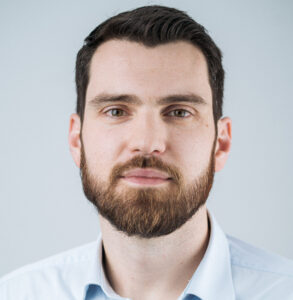Work Packages
The SHERPA project is dedicated to revolutionising the field of interventional radiology by developing and implementing AI-powered assistive technologies. These technologies are designed to support interventional radiologists (IRs) in performing complex, high-risk interventions with greater precision and efficiency.
The project is structured around six key work packages, each with a specific focus and objective.
Work Package 1

WP lead: Johannes B. Reitsma (UMCU)
FRAME - Methodological framework for the evaluation of assistive technologies
Work Package 1 aims to provide state-of-the-art expertise and guidance across various disciplines, including clinical epidemiology, user research, health technology assessment, statistics, data science, human factors, and organizational psychology. The goal is to develop a comprehensive methodological framework for evaluating the impact of assistive healthcare technologies on patient experience, workflow, user workload, job satisfaction, work performance, work efficiency, and workforce sustainability. This framework will ensure that data management is of the highest quality, and it will incorporate the views of a representative sample of stakeholders and experts.
Work Package 2

WP lead: Danny Ruijters (PMS)
AUTOMATE NV - Intelligent Workflow Assistance for Neurovascular Interventions
Work Package 2 focuses on creating AI-based functionalities to optimize the image-guided treatment of unstable intracranial aneurysms. This includes aiding patient selection, clinical decision-making, coordination among care teams, and assisting the IR in endovascular aneurysm treatment and patient follow-up. The AI-powered tools will be evaluated in both pre-clinical settings and clinical studies to ensure their effectiveness and reliability.
Work Package 3

WP lead: Pedro Costa (INS)
AUTOMATE IO - Intelligent Workflow Assistance for Oncological Interventions
Work Package 3 aims to provide clinical evidence for the benefits of CBCT-guided ablations compared to standard care. It involves developing a robotic device for automatic tool (needle) alignment and advancement, proving the clinical and hospital staff benefits of the CBCT workflow and robotic assistance for percutaneous tumor ablations. Additionally, the work package seeks to optimize the CBCT workflow for image-guided percutaneous tumor ablations through very open trajectory and 3D displays that support patient communication.
Work Package 4

WP lead: Dominique Segers (BARCO)
INTEGRATE - Capturing the Benefits of Assistive Technologies for Healthcare Professionals, Patients, and Healthcare Systems
Work Package 4 is dedicated to producing a comprehensive methodological framework that provides specific guidance on evaluating assistive healthcare technologies. This framework will focus on the potential impact on patient experience, workflow, team processes, user workload, job satisfaction, work performance, work efficiency, and workforce sustainability. The goal is to facilitate the deployment of new technologies by fostering trust and acceptance among patients and medical professionals.
Work Package 5

WP lead: Katharina Krischak (EIBIR)
PROMOTE - Dissemination, Communication and Exploitation
Work Package 5 aims to develop and implement a strategy for disseminating, communicating, and exploiting the project’s results. This includes raising awareness of the project, promoting the uptake of research outputs by target groups, and communicating project results through various channels. The work package also focuses on raising clinicians’ awareness of endpoints and metrics for clinical trials and promoting early engagement with patients to support the acceptance of AI-based assistive technologies.
Work Package 6

WP lead: Robert Hofsink (PMS)
ORGANISE - Agile and Effective Project Execution
Work Package 6 is responsible for coordinating and managing the project in line with the project plan. This includes risk management, enabling project cohesion, and fostering interdisciplinary collaboration. The work package aims to assess project risks and decide on mitigation measures early on, ensuring the smooth running of the project, including liaison with the European Commission, project reporting, financial management, and fostering a healthy financial environment.
Together, these work packages aim to develop, evaluate, and promote AI-powered assistive technologies that enhance the workflow and decision-making processes of interventional radiologists, ultimately improving patient outcomes and healthcare efficiency.
